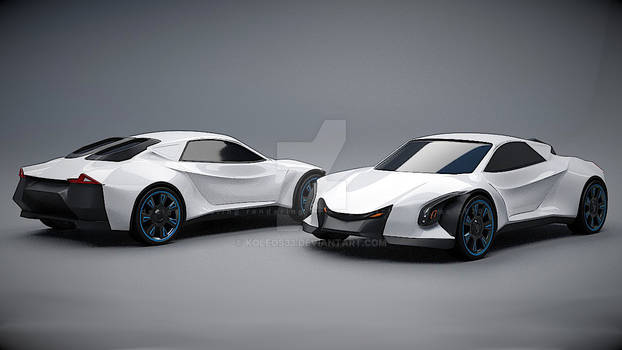
The Role of Artificial Intelligence (AI) Tools in the Automotive Industry
February 12, 2024
The Electric Revolution: Affordable EVs Redefine the Automotive Landscape
February 16, 2024The Evolution of Electric Cars: From Concept to Mainstream Adoption
Introduction
Electric cars have undergone a remarkable journey from being a futuristic concept to becoming a mainstream choice in the automotive industry. This transformation reflects a broader shift towards sustainability, driven by concerns about climate change, air pollution, and the finite nature of fossil fuels. In this comprehensive exploration, we delve into the intricate evolution of electric cars, tracing their origins, pivotal moments, challenges, and the path toward widespread adoption.
1. Tracing the Origins of Electric Cars
The roots of electric vehicles can be traced back to the early 19th century when inventors began experimenting with electric propulsion systems. Early electric vehicles were rudimentary and limited in range, primarily used for short-distance transportation in urban areas. Despite their potential, electric cars faced stiff competition from internal combustion engine vehicles, which offered greater range and faster refueling times.
2. Early Challenges and Advances in Battery Technology
Throughout the late 19th and early 20th centuries, electric cars struggled to gain widespread acceptance due to technological limitations, particularly in battery technology. Early batteries were heavy, bulky, and had limited energy storage capacity. However, incremental advancements in battery chemistry and design gradually improved the performance and range of electric vehicles.
3. The Resurgence of Electric Cars in the 21st Century
The early 21st century marked a resurgence of interest in electric cars, fueled by growing concerns about climate change and environmental sustainability. As governments worldwide began implementing stricter emissions regulations and incentivizing clean energy technologies, automakers started investing in electric vehicle research and development.
4. The Tesla Revolution: Redefining Electric Cars
The emergence of Tesla Motors in the mid-2000s marked a significant turning point in the history of electric cars. Led by visionary entrepreneur Elon Musk, Tesla introduced the groundbreaking Roadster in 2008, a high-performance electric sports car that shattered perceptions about the capabilities of electric vehicles. With its sleek design, impressive range, and blistering acceleration, the Roadster showcased the potential of electric cars to rival their gasoline-powered counterparts in performance and desirability.
5. Expansion of the Electric Vehicle Market
Following the success of the Roadster, Tesla expanded its lineup to include the Model S, Model X, and Model 3, catering to a wider range of consumers with varying budgets and preferences. Concurrently, traditional automakers such as Nissan, Chevrolet, BMW, and Audi entered the electric vehicle market, introducing their electric models to compete with Tesla and meet the growing demand for sustainable transportation options.
6. Government Incentives and Infrastructure Development
Governments around the world played a crucial role in promoting the adoption of electric cars by offering various incentives and subsidies to consumers and automakers. These incentives included tax credits, rebates, reduced registration fees, and access to preferential parking and carpool lanes. Moreover, governments invested in the development of charging infrastructure to alleviate range anxiety and facilitate long-distance travel for electric vehicle owners.
7. Technological Innovation and Range Improvement
Advancements in battery technology, charging infrastructure, and electric drivetrain efficiency have significantly improved the performance and range of electric cars. Modern electric vehicles offer competitive ranges, with some models surpassing 300 miles on a single charge. Additionally, innovations in regenerative braking, thermal management systems, and lightweight materials have enhanced the overall efficiency and driving dynamics of electric cars.
8. Environmental and Economic Benefits
The transition to electric cars offers numerous environmental and economic benefits. Electric vehicles produce zero tailpipe emissions, reducing air pollution and greenhouse gas emissions that contribute to climate change. Moreover, electric cars have lower operating costs compared to conventional gasoline-powered vehicles, thanks to the lower cost of electricity and reduced maintenance requirements.
9. Overcoming Challenges and Resistance
Despite the progress made in the electric vehicle market, several challenges and barriers remain. Range anxiety, limited charging infrastructure, higher upfront costs, and concerns about battery longevity are among the key challenges facing electric car adoption. Additionally, entrenched interests in the fossil fuel industry and resistance from traditional automakers pose obstacles to the widespread adoption of electric vehicles.
10. Conclusion: Embracing the Electric Future
In conclusion, the evolution of electric cars from a niche concept to a mainstream choice represents a transformative shift in the automotive industry. As technology continues to improve and consumer preferences evolve, electric vehicles are poised to become the dominant form of transportation in the 21st century. With continued investment in research, infrastructure, and policy support, electric cars hold the promise of a cleaner, more sustainable future for generations to come.
FAQs (Frequently Asked Questions)
1. Are electric cars truly environmentally friendly?
Electric cars produce zero tailpipe emissions, making them cleaner than traditional gasoline-powered vehicles. However, the environmental impact depends on factors such as the source of electricity used for charging and the manufacturing process of batteries.
2. How long do electric car batteries last?
The lifespan of electric car batteries varies depending on factors such as usage patterns, charging habits, and environmental conditions. On average, modern electric car batteries are designed to last for several years before requiring replacement or refurbishment.
3. What is the future outlook for electric cars?
The future of electric cars looks promising, with continued advancements in technology, infrastructure, and policy support driving widespread adoption. As battery costs decrease, range improves, and charging infrastructure expands, electric cars are expected to become increasingly accessible and desirable to consumers worldwide.


